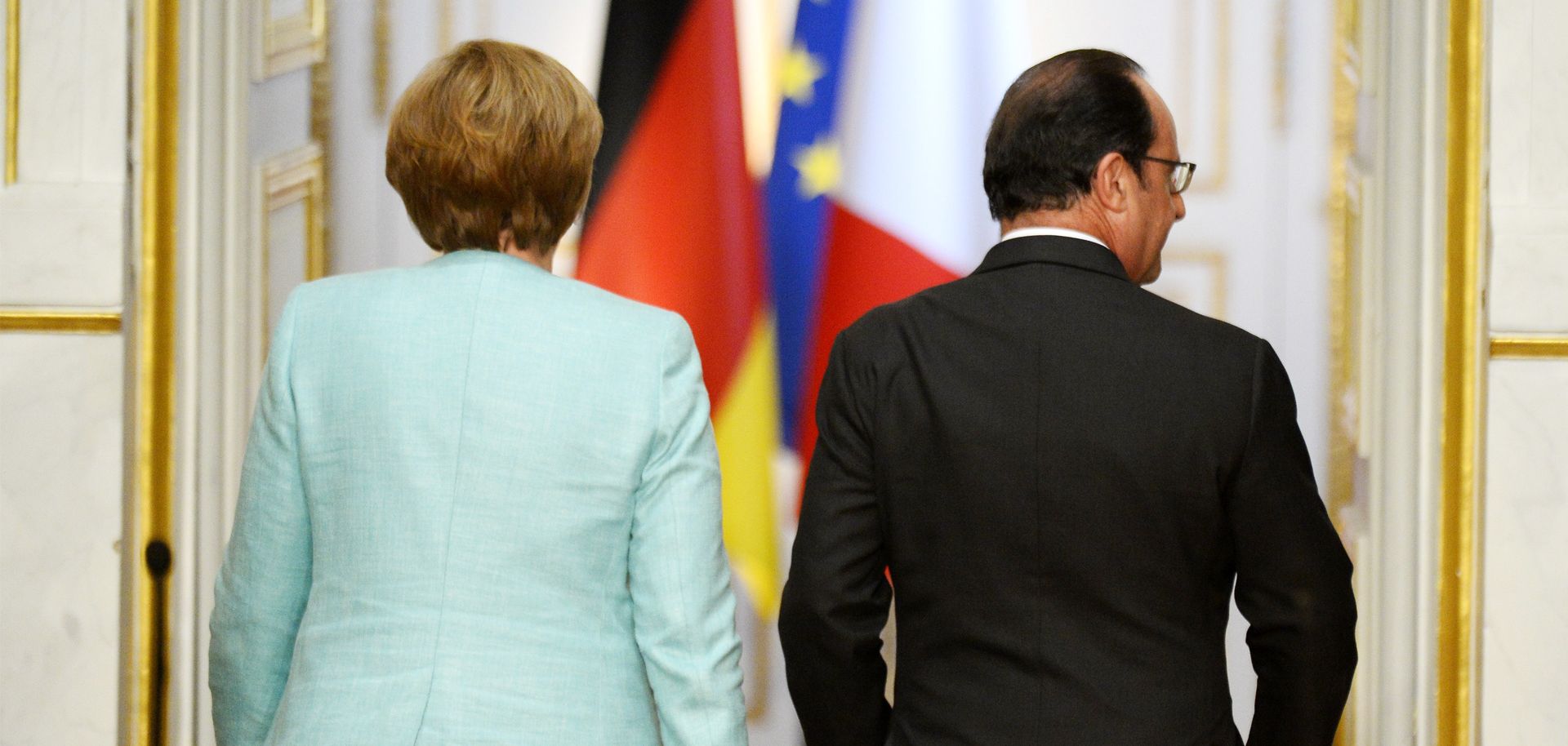ASSESSMENTS
Greece and the Looming German-French Divide
Jul 15, 2015 | 15:00 GMT

(BERTRAND GUAY/AFP/Getty Images)
Summary
French leaders took an active role in negotiations in the weeks leading up to Greece's agreement with its creditors because of a combination of long-term and short-term concerns. France is both a Mediterranean and a Northern European country, and as such is interested in preserving its role as a middleman between Germany and the eurozone periphery. Paris is also worried about the economic and political consequences of a potential "Grexit," particularly the destabilization of the Eastern Mediterranean region and the risk of the crisis spreading to the fragile economies of Southern Europe.
Germany's hardline strategy during the negotiations with Greece created the potential for future conflict between Paris and Berlin, especially because resistance to austerity and, in some cases, EU integration is growing in Mediterranean Europe. More countries will likely resist German leadership in the future, making it more difficult for France to preserve its role as mediator between Northern and Southern Europe. In addition, political developments in France could increase resistance to Germany's leadership of the European Union.
Subscribe Now
SubscribeAlready have an account?
